How Scott Morrison pulled off the deal of a lifetime
While some suggested Morrison had been snubbed by Biden at a June summit, the PM was setting up one of the most important security deals in our history.
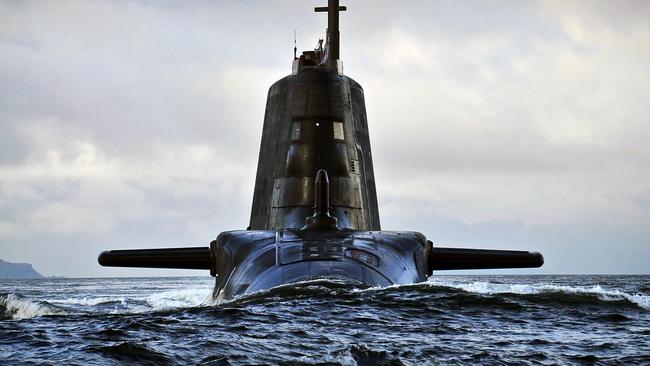
It was in the weeks following Scott Morrison’s visit to the French coastal hamlet of Biarritz to attend the G7 summit in August 2019 that he began turning his mind to submarines.
Poring over the defence contracts that Australia had signed up to, the Prime Minister wanted to assure himself that there would be no regrets in the $90bn French deal for 12 Attack-class subs signed in 2016.
He brought in his defence adviser, Jimmy Kiploks, and asked him to make some discreet enquiries as to whether a technical question could be asked of Defence. Was there any prospect of nuclear-powered submarines? And if so, how could that happen?
Two things changed in the past five years. Technology changed and so had the world. The strategic environment had deteriorated dramatically and China’s militarisation of the region was demanding a response.
The submarine technology that wasn’t previously available had also evolved to a point that a nuclear-powered boat that didn’t require a civil nuclear power capability had now become a possibility.
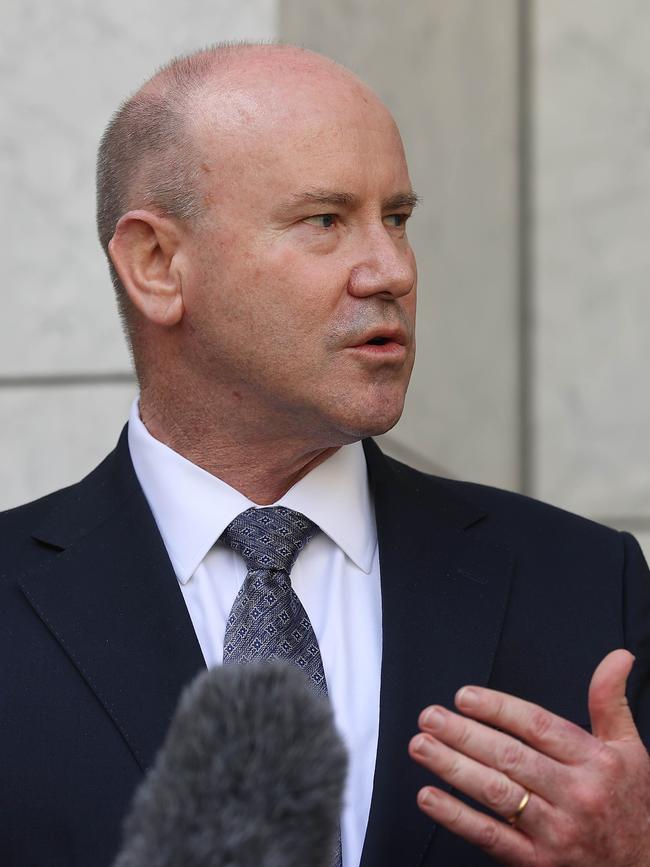
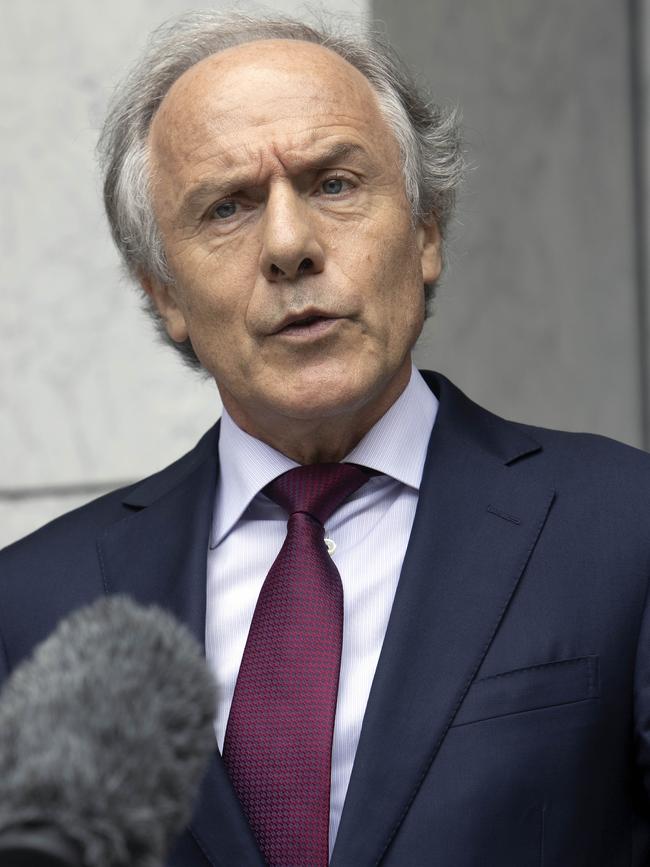
Defence department secretary Greg Moriarty was tasked with leading an informal technical group, advised by experts including former chief scientist Alan Finkel, to look at all options and engage with counterparts in the US and UK. It wasn’t long before it reported back that a nuclear option might be possible.
Tony Abbott had raised the prospect of buying US Virginia-class nuclear submarines in a deep dive session of the National Security Committee of cabinet but it had never progressed beyond an informal discussion.
The technical group set up by Morrison kept reporting back to him in secret that not only were the technical aspects of such a program possible but the will to make it happen was also gaining pace.
By April this year, Morrison came up with the idea for a more formal framework that could deliver such a program. But it would go beyond just submarines.
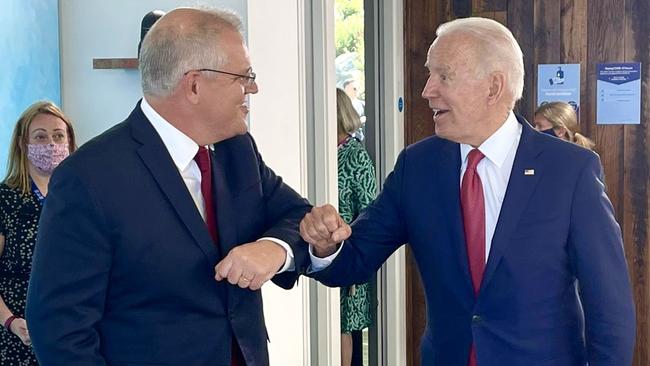
When Peter Dutton was appointed Defence Minister in March, much of the technical work had been done. Discussions about a trilateral deal began with Kurt Campbell, White House co-ordinator for the Indo-Pacific, and Joe Biden’s National Security Adviser Jake Sullivan
The election of Biden was the game-changer. After an 18-month process, held tightly by Morrison and a handful of cabinet ministers, AUKUS was sealed during a 45-minute meeting on the sidelines of the G7-plus summit in Cornwall.
The June 12 meeting at the Carbis Bay hotel, which ran over time, was intended to be the first in-person talks between Morrison and Biden but following a flurry of meetings between senior advisers in the 24 hours before, the late Saturday afternoon bilat was scaled up to include Boris Johnson.
There was no press conference and limited fanfare around the trilateral meeting but the outcomes were described as significant. A three-line joint-statement said the trio had “discussed a number of issues of mutual concern, including the Indo-Pacific region”.
“They agreed that the strategic context in the Indo-Pacific was changing and there was a strong rationale for deepening co-operation between the three governments,” the statement said.
The leaders had, in fact, agreed to progressing AUKUS, a new partnership strengthening military, scientific, logistical and technological ties and helping Australia develop a nuclear-powered submarine fleet.
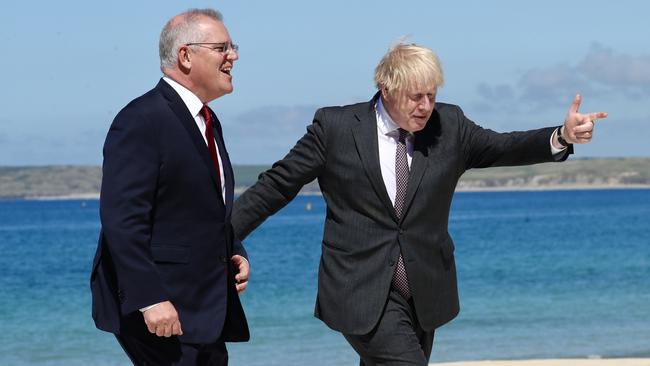
Far from what some in the media and Labor suggested was a “snub” by Biden, Morrison had pulled off one of the most important security agreements in the nation’s history. Immediately before the trilateral meeting with the US President, Morrison met with Johnson in the British leaders’ Carbis Bay residence to nail down details for AUKUS.
Morrison on Thursday said at the Carbis Bay meeting there was a “clear sense of shared purpose (and) an easy sense of agreement”.
“This was a natural territory for each of us to move into. ‘But this is Australia,’ Biden remarked, in understanding the depth of our experience over more than a century,” Morrison said.
While the process had begun before the 2020 US election, led by senior defence and diplomatic officials, Morrison and Donald Trump never discussed the military pact, with limited political and no leader-to-leader involvement until this year.
In a private session at the G7, Morrison had shocked leaders after outlining China’s aggression towards Australia, including a list of 14 grievances dispersed by Beijing’s embassy in Canberra.
French President Emmanuel Macron and others took the list back to their cabinets to discuss the rising threat posed by Beijing.
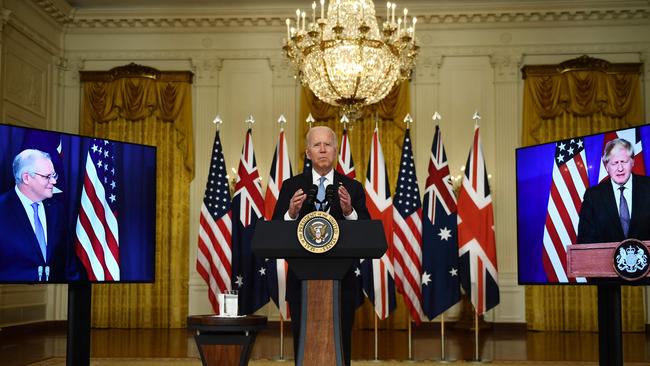
After securing the UK-Australia free-trade agreement with Johnson in London, Morrison flew to Paris for a meeting with Naval Group to outline his concerns with the subs program.
Following the business roundtable meeting, he drove to Macron’s Paris residence, the Elysee Palace, where the pair warmly embraced. They spoke of shared challenges in the Indo-Pacific, China, and Macron’s commitment to protect democracy and freedom of navigation in the South Pacific.
Over dinner, Morrison spoke frankly of Australia’s apprehensions about the Naval Group program, which had been bogged down by delays and cost blowouts.
The conversation focused on the strategic situation in the Indo-Pacific, Australia’s capability requirements and whether conventional submarines could address those needs. Morrison assured Macron he had complete confidence in Naval’s ability to deliver the best Attack-class submarine, but it was increasingly clear that if nuclear submarines were on offer, Australia would need to rethink its long-term plans, despite the costs.
After Morrison held a press conference the next day and spoke about “contract gates”, French officials knew the government was laying the ground to exit the Naval Group contract.
Morrison, who had been in text and phone contact with the French President since the dinner, broke the news to Macron ahead of the AUKUS announcement. Macron was bitterly disappointed and Australian authorities are expecting challenges in the relationship, similar to when Japan missed out on the sub contract in 2016.
The first call Morrison made to international leaders on Wednesday was to New Zealand Prime Minister Jacinda Ardern. Australian officials hoped New Zealand could help smooth over concerns about the submarines among South Pacific nations, still sensitive about nuclear testing in the region.
Morrison also spoke to Indian Prime Minister Narendra Modi and outgoing Japanese Prime Minister Yoshihide Suga, who he will join at the White House next week for the first in-person Quadrilateral security dialogue leaders’ meeting.
Indonesia Defence Minister Prabowo Subianto and Foreign Affairs Minister Retno Marsudi were informed about the AUKUS announcement by Dutton and Marise Payne on Wednesday, with Morrison speaking to other ASEAN leaders on Thursday.
Chinese officials, along with other members of the diplomatic corps, were also offered government briefings.
The combination of next week’s Quad meeting and the AUKUS security partnership will be viewed by Beijing as provocative. Chinese retaliation is expected to come in the form of new trade sanctions and more threatening rhetoric.
Morrison, Dutton, Moriarty and Chief of the Defence Force Angus Campbell are well aware of Australia’s vulnerabilities, of which there are many. Their strategy focuses on three core elements: strengthening domestic resilience and enhancing Australia’s sovereign capability in science, tech, energy, and military hardware; strengthening regional alliances and partnerships with like-minded countries; and protecting and preserving freedoms and the liberal, rules-based order.
More Coverage
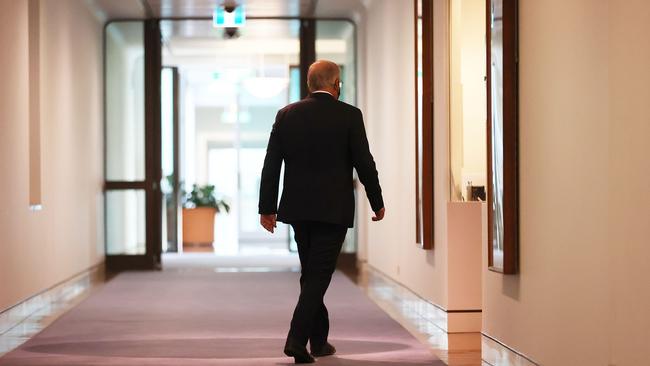

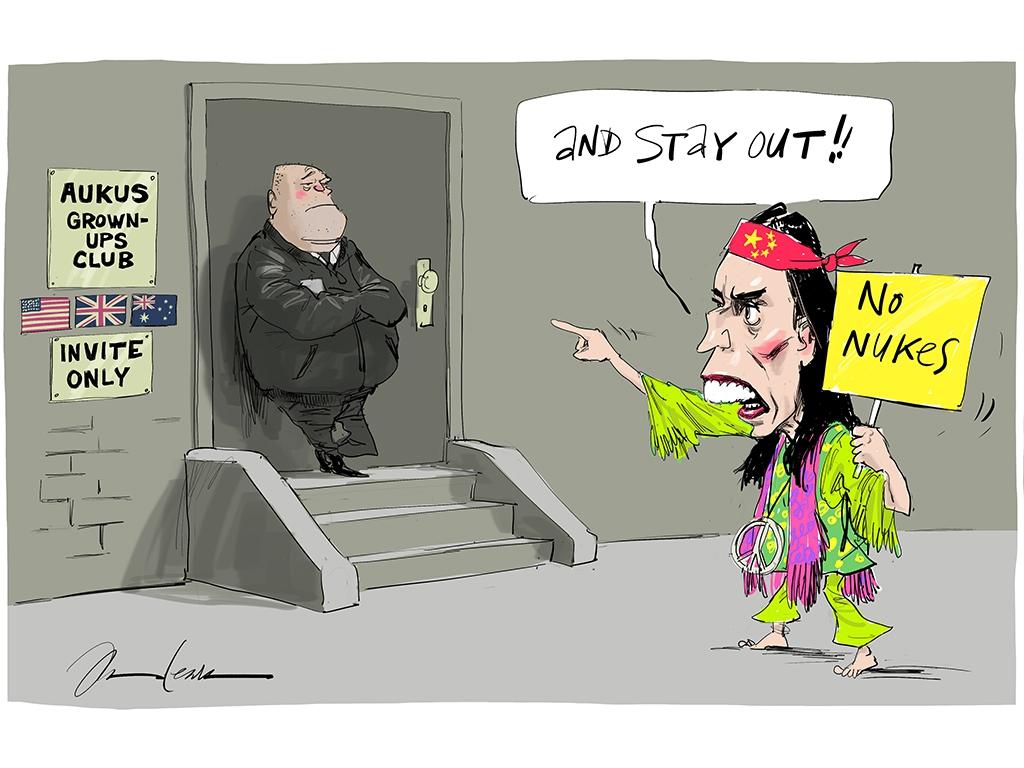
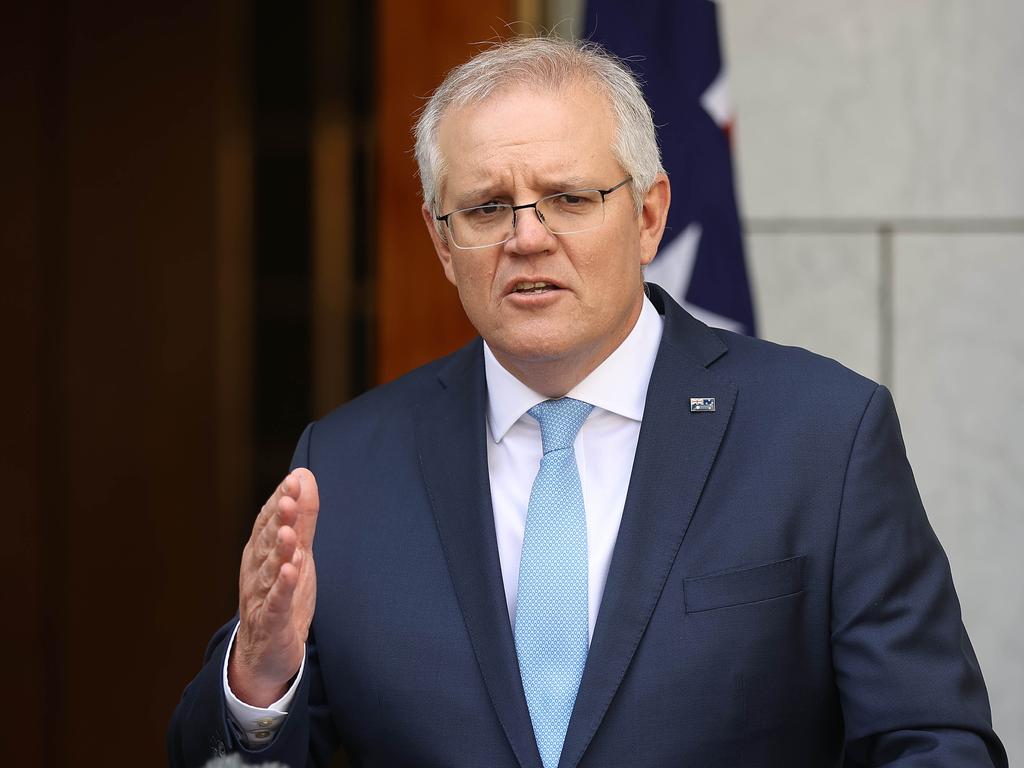
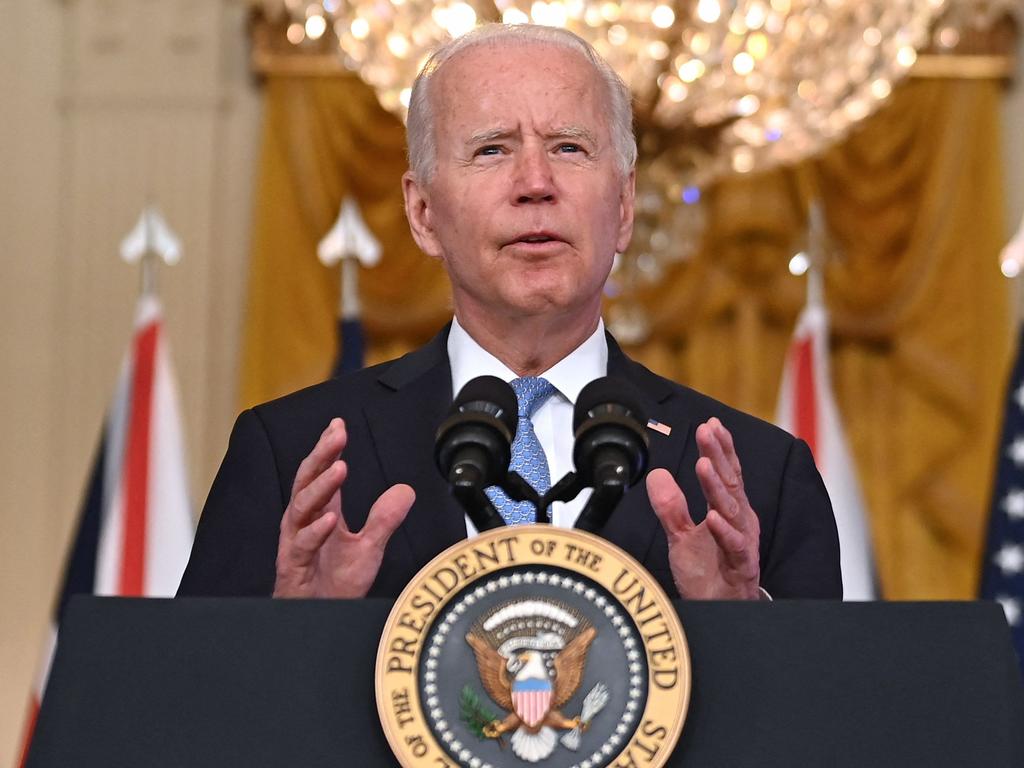

To join the conversation, please log in. Don't have an account? Register
Join the conversation, you are commenting as Logout